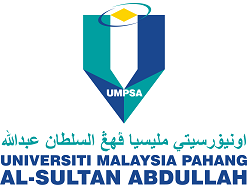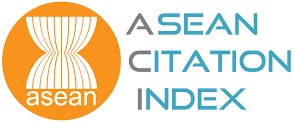Influence of tool offsetting and base metal positioning on the material flow of AA5052-AA6061 dissimilar friction stir welding
DOI:
https://doi.org/10.15282/jmes.14.1.2020.15.0500Keywords:
Friction stir welding, aluminum alloy, dissimilar welding, material flow, microstructural analysis, mechanical characterizationAbstract
This study examines dissimilar friction stir welding of AA5052-AA6061 aluminum alloys with varying tool offsets. The base metals were positioned and fixed at a slight diagonal positioning such that varying tool offset position from the centreline can also be varied along the length of the weld. After the fabrication process, microstructural and mechanical property characterization was subsequently conducted. The results show that, above a certain threshold for tool offset, incomplete consolidation (i.e. kissing bond defects) will occur. Regardless of the base material positioning, a zero tool offset shows optimum intermixing in the stir zone. EDX mapping confirms the presence of a distinct interface between both materials in the stir zone region. However, enhanced material intermixing and better elongation are observed when AA6061 alloy is positioned at the tool advancing side.
References
Mishra RS, Mahoney MW. Friction Stir Welding and Processing. 1st edition Materials Park, Ohio: ASM International; 2007.
Guo S, Shah L, Ranjan R, Walbridge S, Gerlich A. Effect of quality control parameter variations on the fatigue performance of aluminum friction stir welded joints. International Journal of Fatigue. 2018;118:150–61.
Sathari NAA, Shah LH, Razali AR. Investigation of single-pass/double-pass techniques on friction stir welding of aluminium. Journal of Mechanical Engineering and Sciences. 2014;7:1053-1061.
Shah LH, Othman NH, Gerlich A. Review of research progress on aluminium–magnesium dissimilar friction stir welding. Science and Technology of Welding and Joining. 2018;23:256–70.
Murr LE. A review of FSW research on dissimilar metal and alloy systems. Journal of Materials Engineering and Performance. 2010;19:1071–89.
Hussein SA, Tahir ASM, Hadzley AB. Characteristics of aluminum-to-steel joint made by friction stir welding: A review. Materials Today Communications. 2015;5:32–49.
Galvão I, Loureiro A, Rodrigues DM. Critical review on friction stir welding of aluminium to copper. Science and Technology of Welding and Joining. 2016;21:523–46.
Mehta KP, Badheka VJ. A review on dissimilar friction stir welding of copper to aluminum: Process, properties, and variants. Materials and Manufacturing Processes. 2016;31:233–54.
DebRoy T, Bhadeshia HKDH. Friction stir welding of dissimilar alloys – a perspective. Science and Technology of Welding and Joining. 2010;15:266–70.
Hasan MM, Ishak M, Rejab MRM. A simplified design of clamping system and fixtures for friction stir welding of aluminium alloys. Journal of Mechanical Engineering and Sciences. 2015;9:1628–39.
Sabry I, El-Kassas AM. An appraisal of characteristic mechanical properties and microstructure of friction stir welding for Aluminium 6061 alloy – Silicon Carbide (SiCp) metal matrix composite. Journal of Mechanical Engineering and Sciences. 2019;13:5804–17.
Wang X, Pan Y, Lados DA. Friction stir welding of dissimilar Al/Al and Al/Non-Al alloys: A review. Metallurgical and Materials Transaction B. 2018;49:2097–117.
Kumar N, Yuan W, Mishra RS. Friction stir welding of dissimilar alloys and materials. Oxford: Butterworth-Heinemann; 2015.
Ramachandran KK, Murugan N, Kumar SS. Effect of tool axis offset and geometry of tool pin profile on the characteristics of friction stir welded dissimilar joints of aluminum alloy AA5052 and HSLA steel. Materials Science and Engineering A. 2015;639:219–33.
Firouzdor V, Kou S. Al-to-Mg friction stir welding : Effect of positions of Al and Mg with respect to the welding tool. Welding Journal. 2009;88:213–24.
Liang Z, Chen K, Wang X, Yao J, Yang Q, Zhang L, et al. Effect of tool offset and tool rotational speed on enhancing mechanical property of Al/Mg dissimilar FSW joints. Metallurgical and Materials Transactions A. 2013;44:3721–31.
Lv XQ, Wu CS, Padhy GK. Diminishing intermetallic compound layer in ultrasonic vibration enhanced friction stir welding of aluminum alloy to magnesium alloy. Materials Letters. 2017;203:81–4.
Sahu PK, Pal S, Pal SK, Jain R. Influence of plate position, tool offset and tool rotational speed on mechanical properties and microstructures of dissimilar Al/Cu friction stir welding joints. Journal of Materials Processing Technology. 2016;235:55–67.
Firouzdor V, Kou S. Al-to-Cu friction stir lap welding. Metallurgical and Materials Transactions A. 2012;43A:303–15.
Xavier MF, Jayabalan V. Tool travel speed effects on the microstructure of friction stir welded aluminum – copper joints. Journal of Materials Processing Technology. 2015;217:105–13.
Al-roubaiy AO, Nabat SM. Experimental and theoretical analysis of friction stir welding of Al – Cu joints. International Journal of Advance Manufacturing Technology. 2014:1631–42.
Wu LH, Nagatsuka K, Nakata K. Achieving superior mechanical properties in friction lap joints of copper to carbon-fiber-reinforced plastic by tool offsetting. Journal of Materials Science and Technology. 2018;34:1628–37.
Cavaliere P, Panella F. Effect of tool position on the fatigue properties of dissimilar 2024-7075 sheets joined by friction stir welding. Journal of Materials Processing Technology. 2008;206:249–55.
Abhay PM, Madhusudhan SG. Dissimilar friction stir welds in AA2219-AA5083 aluminium alloys : Effect of process parameters on material inter-mixing, defect formation, and mechanical properties. Transactions of the Indian Institute of Metals. 2016;69:1397–415.
Moradi MM, Aval HJ, Jamaati R. Microstructure and mechanical properties in nano and microscale SiC-included dissimilar friction stir welding of AA6061-AA2024. Materials Science and Technology. 2018;34:388–401.
Zaman N, Noor A, Khan ZA, Shihab SK. Investigations on tunneling and kissing bond defects in FSW joints for dissimilar aluminum alloys. Journal of Alloys and Compounds. 2015;648:360–7.
Guo J, Gougeon P, Chen X. Microstructure evolution and mechanical properties of dissimilar friction stir welded joints between AA1100-B 4 C MMC and AA6063 alloy. Materials Science and Engineering A. 2012;553:149–56.
Cole EG, Fehrenbacher A, Duffie NA, Zinn MR. Weld temperature effects during friction stir welding of dissimilar aluminum alloys 6061-t6 and 7075-t6. International Journal of Advance Manufacturing Technology. 2014;71:643–52.
Kumar K, Kailas S V. On the role of axial load and the effect of interface position on the tensile strength of a friction stir welded aluminium alloy. Materials and Design. 2008;29:791–7.
Miranda AC de O, Gerlich A, Walbridge S. Aluminum friction stir welds: Review of fatigue parameter data and probabilistic fracture mechanics analysis. Engineering Fracture Mechanics. 2015;147:243–60.
Ranjan R, Carlos de Oliveira Miranda A, Hui Guo S, Walbridge S, Gerlich A. Fatigue analysis of friction stir welded butt joints under bending and tension load. Engineering Fracture Mechanics. 2018;206:34–45.
ASTM. Standard test methods for tension testing of metallic materials. Annual Book of ASTM Standards, 2001.
Malin V. Study of metallurgical phenomena in the HAZ of 6061-T6 aluminum welded joints. Welding Research Supplement. 1995:305–18.
Mathers G. The welding of aluminium and its alloys. Cambridge, England: Woodhead Publishing Limited; 2002.
Liu H, Fujii H, Nogi K. Tensile properties and fracture locations of friction-stir welded joints of 6061-T6 aluminum alloy Tensile properties and fracture locations of friction-stir welded joints of 6061-T6 aluminum alloy. Journal of Materials Science Letters. 2003;22:1061–3.
Ahmad Shah LH, Sonbolestan S, Midawi RH, Walbridge S, Gerlich A. Dissimilar friction stir welding of thick plate AA5052-AA6061 aluminum alloys: effects of material positioning and tool eccentricity. International Journal of Advance Manufacturing Technology. 2019;105:889–904.
Nunes AC. The evolution of friction stir welding theory at Marshall Space Flight Center. 9th Internationl Friction Stir Welding Symposium, Huntsville, Alabama: 2012, 1–19.
Wang B, Lei BB, Zhu JX, Feng Q, Wang L, Wu D. EBSD study on microstructure and texture of friction stir welded AA5052-O and AA6061-T6 dissimilar joint. Materials and Design. 2015;87:593–9.
Amancio-Filho ST, Sheikhi S, dos Santos JF, Bolfarini C. Preliminary study on the microstructure and mechanical properties of dissimilar friction stir welds in aircraft aluminium alloys 2024-T351 and 6056-T4. Journal of Materials Processing Technology. 2008;206:132–42.
Ilangovan M, Rajendra Boopathy S, Balasubramanian V. Effect of tool pin profile on microstructure and tensile properties of friction stir welded dissimilar AA 6061–AA 5086 aluminium alloy joints. Defence Technology. 2015;11:174–84.
Zhang P, Li SX, Zhang ZF. General relationship between strength and hardness. Materials Science and Engineering A. 2011;529:62–73.
Kaufman JG. Properties of aluminum alloys: Tensile, creep and fatigue data at high and low temperatures. Ohio, USA: ASM International; 1999.
Reynolds AP. Flow visualization and simulation in FSW. Scripta Materialia. 2008;58:338–42.
Downloads
Published
Issue
Section
License
Copyright (c) 2020 The Author(s)

This work is licensed under a Creative Commons Attribution-NonCommercial 4.0 International License.






